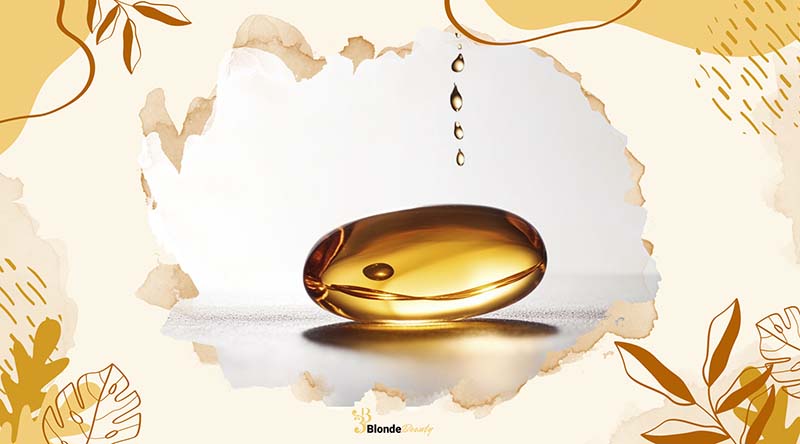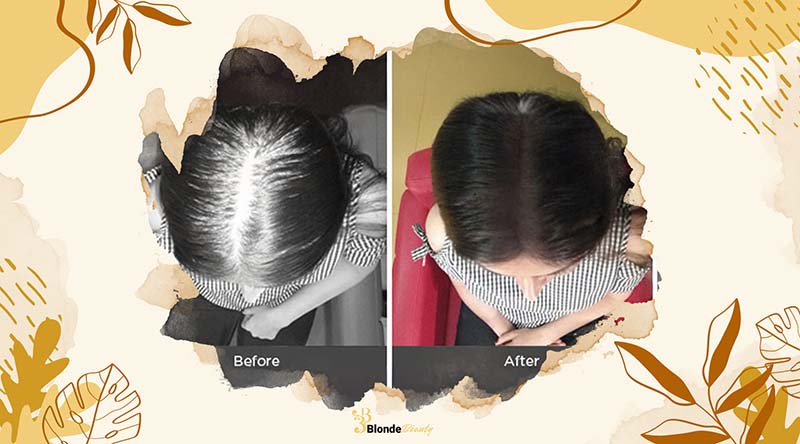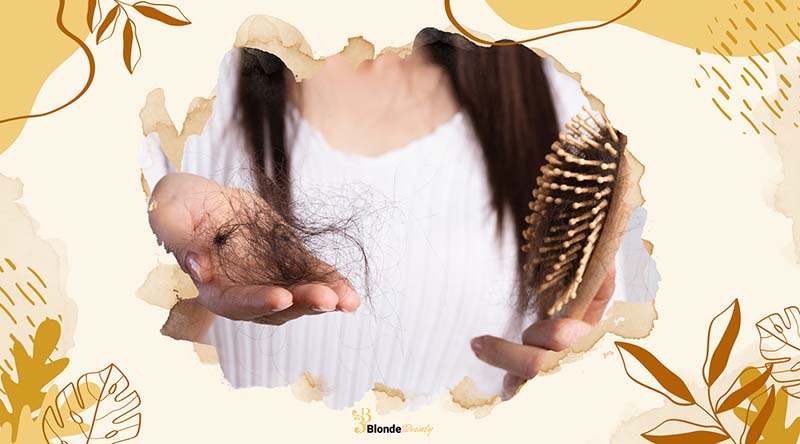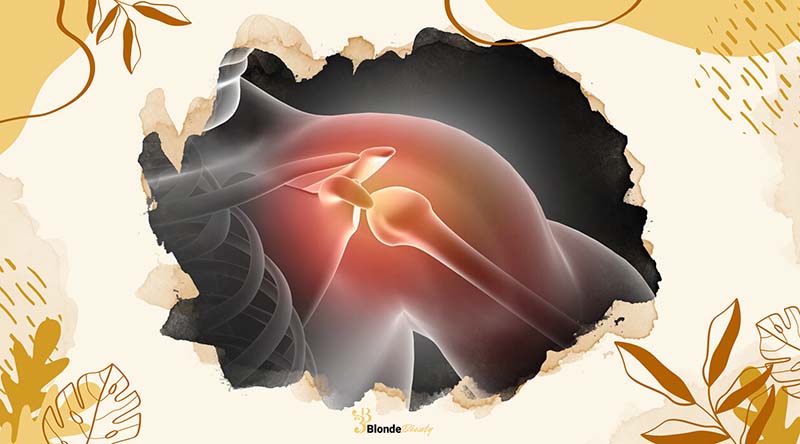Fish oil, rich in omega-3 fatty acids, is often recommended for its potential to enhance hair health, especially for those dealing with hair loss. However, conclusive evidence supporting this claim is still needed.
For those interested in increasing their intake of omega-3s, there are two primary options: adjusting your diet to include more fatty fish or opting for fish oil supplements, which are widely available. It’s important to note, though, that the quality and actual content of these supplements can vary greatly, and labels might not always accurately represent what’s inside.
If you’re considering taking supplements, selecting products from trusted brands and consulting with a healthcare provider is essential to ensure safety and effectiveness.
This article addresses the question, “Does Fish Oil Help Hair Growth?” by exploring its potential benefits in preventing hair loss and offering insights into both dietary and supplemental sources.
Does Fish Oil Help Hair Growth
Most research on fish oil has looked at its effects on hair loss. While these studies have been small, their results suggest that fish oil might help promote hair growth.
Fish oil might help by making hair enter its growth phase or stay there longer. Hair grows in four stages: anagen, catagen, telogen, and exogen. The anagen stage is when growth happens. A 2018 animal study found that fermented mackerel oil increased the time hair spent in the anagen phase. However, this might not apply to humans.
A 2015 study with 120 female participants found that a supplement with omega-3s and omega-6s reduced the amount of hair in the resting (telogen) stage and increased the amount in the growth stage. Compared to a control group, participants who took the supplement for six months reported less hair loss and more growth.
While these results are promising, more research is needed to determine if fish oil can reliably support hair growth in everyone.

Hair Benefits of Fish Oil
Many people take fish or fish oil supplements to help with hair growth and prevent hair loss. The omega-3 found in fish oil is believed to:
Improve Hair Thickness
A 2015 study showed that women who took a mix of omega-3s, omega-6s, and antioxidants had a shorter telogen (rest) phase and a longer anagen (growth) phase.
After six months, these women noticed an increase in hair diameter and density.

Promote Growth
A 2018 study found that using a topical extract of fermented fish oil from mackerel promoted hair growth in the anagen phase and reduced the telogen phase.
DHA, the main omega-3 in the extract, also boosted the production of dermal papilla cells, which are crucial for hair growth regulation. However, this study was conducted on mice, so more research on human hair is needed.

Reduce Hair Loss
Fish oil might help reduce hair loss. In the same 2015 study, most women reported less hair loss after six months of taking the supplement.
Hair loss affects everyone, regardless of gender. Factors like nutritional deficiencies and oxidative stress can contribute to hair loss. Supplements can help support healthy hair by addressing these factors.

Other Applications of Fish Oil
Here are some additional benefits of fish oil:
Cardiovascular Well-being
Rich in the omega-3 fatty acids EPA and DHA, fish oil has been demonstrated to decrease cholesterol levels, lower triglycerides, and reduce blood pressure.
It also helps prevent the formation of arterial plaques, thereby supporting overall heart health and diminishing the risk of cardiovascular diseases.

Eye Health
A deficiency in omega-3 fatty acids can increase the risk of ocular diseases such as age-related macular degeneration (AMD).
Consuming fish has been associated with a lower risk of AMD, and fish oil supplements are believed to offer similar protective benefits for vision.

Reduced Inflammation
Fish oil possesses anti-inflammatory properties that can help alleviate inflammation throughout the body.
This is particularly advantageous for managing conditions like inflammatory bowel disease, rheumatoid arthritis, and asthma.

Brain Function
Omega-3 fatty acids found in fish oil are crucial for maintaining brain function. Research indicates that fish oil supplements can aid in managing certain mental health issues, including depression.
Additionally, fish oil has been shown to mitigate symptoms of ADHD in children and protect against cognitive decline and dementia as we age.
Notes:
- Tip: To maximize the benefits of fish oil, choose high-quality supplements that are free from contaminants like mercury and PCBs.
- Lesser-Known Advice: Including fatty fish like salmon, mackerel, and sardines in your diet twice a week can provide natural sources of omega-3s, complementing fish oil supplements.
How to Use Fish Oil for Hair Growth
Fish oil offers a range of applications for enhancing hair health. Depending on your preference and tolerance, you may opt for one of the following methods:
- Dietary Integration: Add fatty fish such as salmon, mackerel, and tuna into your meals. These are excellent sources of fish oil, naturally enriching your diet with its benefits.
- Topical Application: Directly apply fish oil onto your scalp, skin, and the roots of your hair. Keep in mind, however, that fish oil has a strong odor that some may find unpleasant.

- Supplementation: Consider taking fish oil capsules to promote hair growth. This method provides a convenient and odor-free option to include the advantages of fish oil for your hair.
Notes:
- Tip: When applying fish oil topically, mix it with a carrier oil like coconut or olive oil to mask the odor and make it easier to apply.
- Lesser-Known Advice: To avoid any potential digestive issues with supplements, start with a lower dose and gradually increase it as your body adjusts.
Individuals Advised to Avoid Fish Oil
Certain individuals should exercise caution or avoid fish oil altogether, especially those with allergies to fish or soybeans since fish oil supplements are derived from fish and might contain allergens. Additionally, people with specific health conditions should consider fish oil under medical guidance:
- Pancreatic Disorders: People with conditions affecting the pancreas should consult a medical professional before using fish oil due to potential impacts.
- Underactive Thyroid: Those diagnosed with an underactive thyroid should use fish oil supplements cautiously and always consult their doctor before starting.
- Diabetes: High doses of fish oil supplements can elevate blood sugar levels, posing risks for individuals with diabetes. Those with type II diabetes should only use fish oil supplements after consulting with a healthcare professional.
- Liver Disease: Before taking fish oil, individuals with liver disease should seek advice from a healthcare provider, as it can influence liver function.
- Alcohol Consumption: Individuals who consume more than two alcoholic drinks per day should use fish oil with caution, as it may interact with alcohol and affect health conditions.
Recommended Fish Oil Dosage
While EPA and DHA, the omega-3 fatty acids found in fish oil, are not classified as essential nutrients, there is no universally prescribed daily intake for these substances. Harvard Health suggests that an adult typically benefits from consuming between 250 and 500 milligrams (mg) of EPA and DHA each day.
Determining the precise amount of EPA and DHA intake can be challenging, as the concentrations in supplements can vary significantly between brands. For example, 1,000 mg of fish oil from one brand might contain different levels of EPA and DHA compared to the same quantity from another brand.
For those looking to obtain omega-3s naturally, oily fish such as salmon, mackerel, and sardines are excellent sources of EPA and DHA. For vegetarians or vegans, algae oil presents a viable plant-based alternative, as few plant sources contain these specific omega-3s.
For enhanced absorption, it is advisable to take fish oil supplements with a fat-containing meal, according to some studies. This practice can help maximize the body’s uptake of omega-3 fatty acids.
Notes:
- Tip: When selecting a fish oil supplement, check the label for the exact amounts of EPA and DHA to ensure you are getting the desired dosage.
- Lesser-Known Advice: If you experience fishy aftertaste or burps from fish oil supplements, try keeping them in the freezer. This can help reduce these side effects.
Effectiveness of Fish Oil for Thinning Hair
Fish oil could potentially benefit thinning hair much as it does hair loss by prolonging the growth phase of hair, which may create the appearance of fuller hair.
Moreover, a study conducted in 2015 revealed that participants who took a supplement enriched with omega-3 and omega-6 fatty acids experienced an increase in hair thickness and density over a period of six months, based on their self-reported observations.
Potential Side Effects of Fish Oil Utilization
Fish oil is generally well-tolerated by most individuals, with side effects usually being mild. Common side effects include:
- Bad breath
- A fishy aftertaste
- Strong-smelling sweat
- Indigestion
- Nausea
- Diarrhea
Taking high doses of fish oil can interfere with proper blood clotting, which may pose a risk for individuals with certain bleeding disorders. Additionally, large quantities of fish oil could enhance the effects of blood-thinning medications such as warfarin (Coumadin).
Anyone with ongoing health issues should consult with a healthcare professional before beginning a fish oil supplement regimen.
Conclusion
Some preliminary studies indicate that fish oil, rich in EPA and DHA, could promote hair growth, yet further research is essential to definitively establish its effectiveness in combating hair loss.
Individuals considering fish oil as a potential solution for hair issues might wonder, “Does fish oil help hair growth?” Those interested should focus on selecting trustworthy brands and consult a healthcare provider, particularly if they have existing health conditions. This cautious approach ensures both safety and potential benefits when using fish oil to support hair health.
Don’t forget to check out more blogs from Blonde Beauty for additional tips and insights on achieving your best hair ever.

Laureate Professor Clare Collins
Professor Clare Collins is a leading expert in nutrition and dietetics at the School of Health Sciences, part of the College of Health, Medicine and Wellbeing. Her work is changing the way we think about food and health. She grew up as one of nine children and was the first in her family to finish high school and go to college. This background gave her a strong work ethic and a deep appreciation for seizing opportunities.
As the Director of the Hunter Medical Research Institute’s Food and Nutrition Program and a recipient of three NHMRC Research Fellowships, Professor Collins is making a big difference in public health. She focuses on helping people who are often overlooked, using new technologies like apps and online programs to improve their nutrition and reduce the risk of chronic diseases.
Professor Collins is well-respected and has been recognized as a Fellow in four major health and science organizations. She leads a diverse team of experts, including dietitians, computer scientists, and engineers, working together on global health projects.
Her achievements are impressive. She has received over $29 million in research funding, published more than 450 papers, and helped 35 PhD and Master’s students complete their degrees. She’s also active in sharing her knowledge with the public. She has developed tools like the Australian Eating Survey and the Healthy Eating Quiz, and she often appears in the media to talk about nutrition.
PUBLISHED ARTICLES
- Collins, C. (2019). “The Effect of a Pilot Dietary Intervention on Pain Outcomes in Patients Attending a Tertiary Pain Service.”
- Collins, C. (2022). “Variation in cardiovascular disease risk factors among older adults.”
- Collins, C. (2022). “Evaluation of an online intervention for improving stroke survivors’ health-related quality of life: A randomised controlled trial.”
These articles show Professor Collins’s commitment to understanding how better nutrition can improve health. Her work is important for researchers, doctors, and anyone interested in healthy living.
